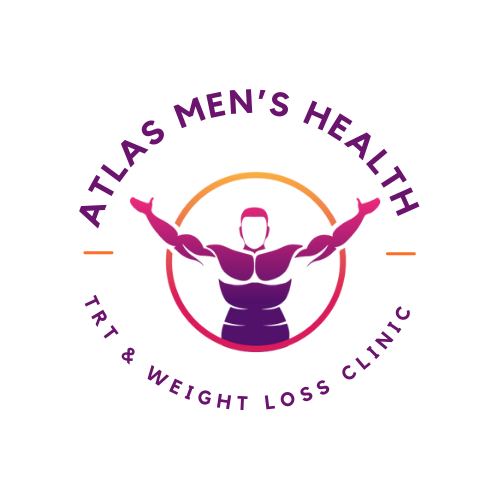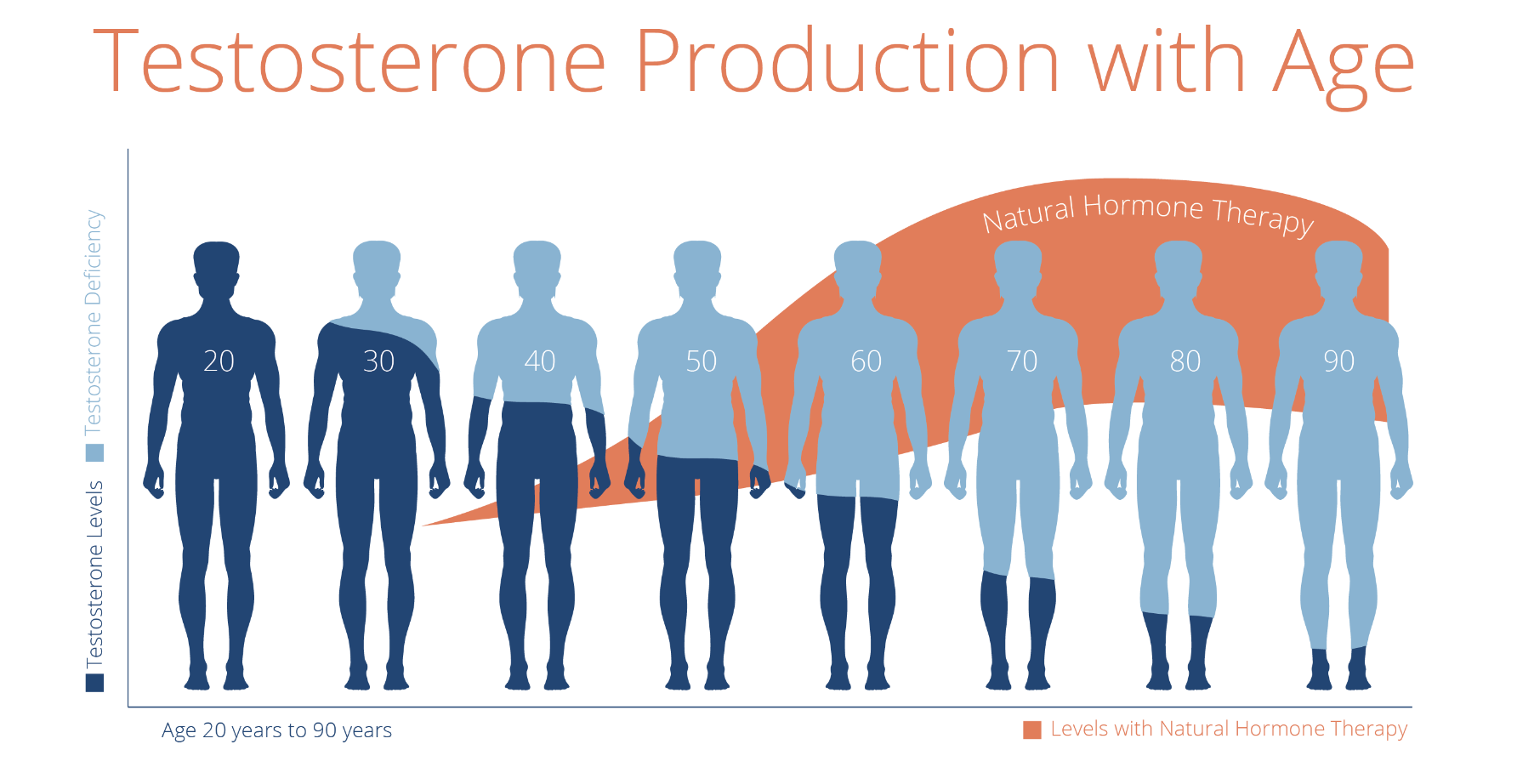Low testosterone can manifest itself in a number of ways. Some of the most common symptoms experienced are weight gain, weakness, fatigue, loss of libido, mood disturbances, and hair loss.
Testosterone has a widespread impact on the way the body works and affects nearly every organ system. T plays a key role in metabolism, by affecting how the body uses its caloric intake and encouraging muscle protein synthesis. Excess abdominal fat can decrease the body’s levels of testosterone and boost estrogen production in males.
The most common reason for lowered T production is simply aging. Research has shown that testosterone levels in aging males fall 1-2% each year after age thirty.
Scientists have also found a link between low T and chemical imbalances in the brain, which may be why men with low T frequently report symptoms such as low libido, fatigue, and mood disturbances.
Testosterone 101
What Happens When You Have Low Testosterone?
Low T Symptoms:
Depression and Anxiety
Lack of Concentration and Memory Issues (Foggy Brain)
Fatigue
Decreased Muscle Mass or Inability To Put On Muscle
Low Libido
Soft Erections
Increased Body Fat
Slower Recovery From Workout
Lack of Motivation
It is estimated that Low T effects 7 million men in the United States. Over the past 30 years, T-levels in men have decreased by 25%. The exact cause of this is unknown, but it is believed to be secondary to the estrogenic effects of plastics, processed foods, environmental pollutants and stress.



